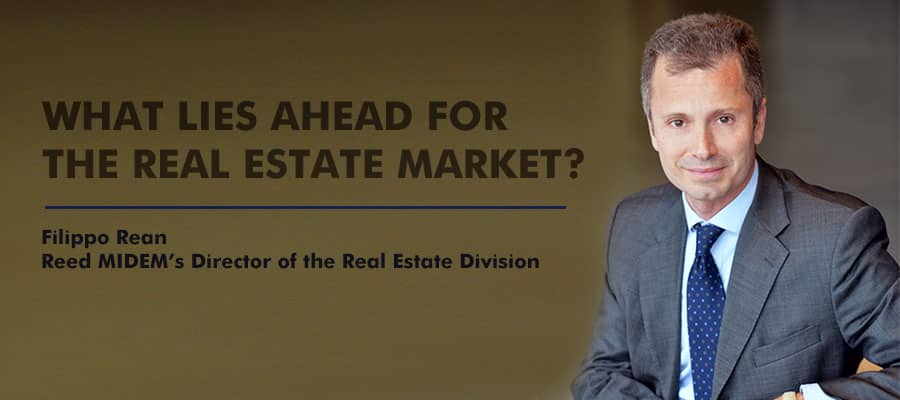New Year, New Deal: How Key Global Challenges Will Impact the Real Estate Sector in 2017

It’s that time of year again, where renewal and reflection are front-of-mind. From a real estate perspective, the real estate sector has seen both great progress and equally great challenges in 2016. To what extent does it need to renew itself?
If you ask me, the real estate sector needs to renew itself in a number of ways, much of which will be covered this year at MIPIM. MIPIM, the premier real estate event held in Cannes, France in March 2017, gathers the most influential players from all sectors of the international property industry for four days of networking, learning and transaction through premium events, conferences and dedicated exhibition zones. This year’s theme is a “New Deal for Real Estate,” exploring the technological revolution, geopolitical instability and societal changes that are evolving in businesses across the globe.
=> Also read: Millennials and the retail revolution, by Nathalie Depetro, MAPIC Director at Reed MIDEM.
This theme perfectly sets the tone for key global challenges we will face in the next decade that will impact the real estate sector; including the issues of a growing population, scarcity of resources, emerging market growth and increased use of technology. In the spirit of renewal, here’s what industry members need to know about adapting to these changing situations to come out strong at the end of another year.
Urban Planning
In the coming years, 8.3 billion people will live on earth and over 60 percent of the population will live in cities. How will this impact the design and construction of tomorrow’s cities? A city of 10 million inhabitants is not the same as a city of 100,000 inhabitants. Energy, space, mobility, sustainable construction and the monitoring of resources are just some of the key factors that need to be considered in the cities of tomorrow. I prefer to see the positive side to these changes and instead look at them as an opportunity. Cities are going to need to be thought of differently.
Efficiency of Resources
How will future real estate projects take into account the need to monitor and save resources, when energy demands will grow 40 percent in the coming years and half the world’s population will be living in areas of high water stress? At MIPIM, we are trying to consider sustainability not only for the building itself and its certification, but also its integration in the city; such relevant topics will include mobility, town-planning, user experience, and resource efficiency. Since innovation is a big focus at MIPIM, it is interesting to see that a lot of companies are finding very creative solutions to reducing the impact of real estate. Our aim is to help these companies to promote their innovations among the real estate community.
Global Economic and Political Power Shifts
Undoubtedly, the political shifts that have been taking place throughout the United States, Europe and the rest of the world will have an impact on the global real estate market. We see a stronger need for our clients and attendees to get insights on what is happening and how it is going to impact their business. For this reason, we have a strong lineup of programming that will treat the current political issues we are facing, including back-to-back conference sessions on the Brexit issue and an examination on how private/public cooperation can increase the value and attractiveness of a city.
Digitalization
Digitalization is a major challenge for the real estate industry as it involves many aspects of the business, from investment to the building itself passing by the asset management. Smart buildings and internet-of-things is also of growing importance of the sector. Buildings do take time to construct, but the industry is always thinking ahead to incorporate those newest technological advances during construction. All these aspects will be treated at MIPIM with for example a conference session dedicated to new financing models such as green bonds, blockchain, bitcoin and crowdfunding.
Have you read?
- Will 2017 be a year to remember? Only time, of course, will tell
- 3 Mistakes Every Business Makes with Communication Policies
- India’s Top 12 Tech Cities: Digital Indian Cities Survey, 2016
- The Top 50 Biggest Public Companies In Asia-Pacific Region
- Singapore’s Top 28 Richest People By Net Worth: Singaporean Billionaires
- Top 25 Cities With The Most Expensive Taxi Fares In The World
Bring the best of the CEOWORLD magazine's global journalism to audiences in the United States and around the world. - Add CEOWORLD magazine to your Google News feed.
Follow CEOWORLD magazine headlines on: Google News, LinkedIn, Twitter, and Facebook.
Copyright 2025 The CEOWORLD magazine. All rights reserved. This material (and any extract from it) must not be copied, redistributed or placed on any website, without CEOWORLD magazine' prior written consent. For media queries, please contact: info@ceoworld.biz








